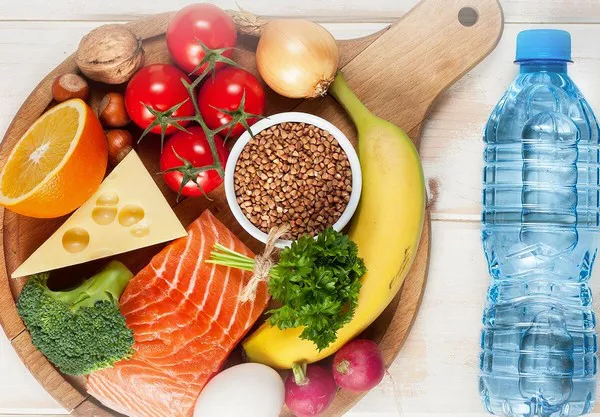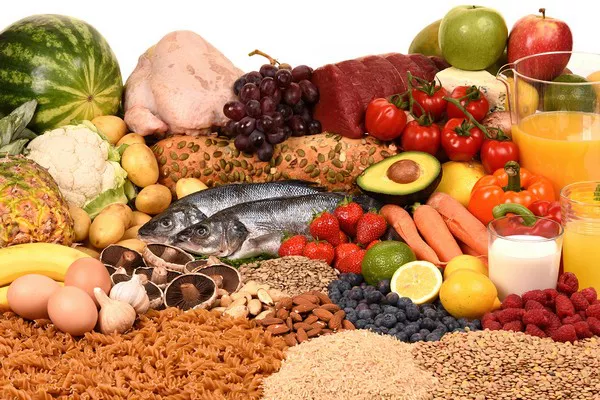When it comes to meeting our daily protein needs, fruits may not be the first category of food that comes to mind. However, there are certain fruits that contain a surprising amount of protein, making them an excellent addition to a well-rounded diet. In this article, we will delve into the world of high-protein fruits, exploring their nutritional profiles, health benefits, and delicious ways to incorporate them into your meals and snacks.
The Role of Protein in the Diet
Protein is an essential macronutrient that plays a vital role in our overall health. It is responsible for building and repairing tissues, producing enzymes and hormones, supporting immune function, and providing a source of energy. While animal-based products like meat, poultry, and dairy are commonly associated with high protein content, plant-based sources, including fruits, can also contribute to our daily protein intake.
Understanding Protein Content in Fruits
While fruits are not typically considered a primary source of protein, there are several varieties that offer a notable protein content. However, it is important to note that fruits generally contain lower protein levels compared to other food groups like legumes, nuts, and seeds. Nonetheless, incorporating high-protein fruits into your diet can contribute to your overall protein intake and provide a range of other essential nutrients.
Avocado
Avocado is a unique fruit that stands out in terms of its nutritional composition. Although it is often praised for its healthy fats, avocados also contain a decent amount of protein. On average, a medium-sized avocado provides around 4 grams of protein. Additionally, avocados are rich in fiber, healthy monounsaturated fats, vitamins (such as vitamin K, vitamin C, vitamin E, and B vitamins), and minerals (including potassium and magnesium).
Guava
Guava, a tropical fruit known for its distinct flavor and vibrant color, is another surprising contender on the list of high-protein fruits. This delicious fruit contains approximately 2.6 grams of protein per cup. Guava is also an excellent source of dietary fiber, vitamin C, and several other antioxidants that support immune function and overall well-being. Moreover, guava offers a host of additional health benefits, including improved digestion and heart health.
Blackberries
Blackberries are not only bursting with flavor but also provide a notable amount of protein. With approximately 2 grams of protein per cup, blackberries are a great option for those seeking a high-protein fruit. These berries are also rich in vitamins (such as vitamin C, vitamin K, and vitamin E), minerals (including manganese and copper), and antioxidants that help combat oxidative stress and inflammation in the body. Including blackberries in your diet can contribute to improved cognitive function and a strengthened immune system.
Dried Apricots
Dried apricots are a convenient and portable snack that offers a concentrated dose of protein. While fresh apricots contain a modest amount of protein, the drying process removes the water content, leading to a higher concentration of nutrients, including protein. Approximately 1 cup of dried apricots provides about 4 grams of protein. These sweet and tangy treats are also rich in dietary fiber, vitamins (such as vitamin A and vitamin C), and minerals (including potassium and iron).
Jackfruit
Jackfruit is a large tropical fruit that is gaining popularity as a meat alternative in plant-based diets. While fresh jackfruit contains a moderate amount of protein, the young, unripe jackfruit is the star when it comes to protein content. Young jackfruit contains around 2 grams of protein per cup and is often used as a meat substitute due to its texture and ability to absorb flavors. Jackfruit is also a good source of dietary fiber, vitamin C, and potassium, making it a versatile and nutritious addition to various dishes.
Kiwi
Kiwi, a small fruit with a fuzzy brown exterior and vibrant green flesh, may not be the first fruit that comes to mind when thinking about protein. However, kiwi contains about 2 grams of protein per cup. In addition to its protein content, kiwi is packed with vitamin C, vitamin K, dietary fiber, and antioxidants that support cardiovascular health and promote healthy digestion. Its unique flavor and refreshing taste make kiwi a wonderful addition to salads, smoothies, or enjoyed on its own.
Incorporating High-Protein Fruits into Your Diet
Now that you are familiar with some of the high-protein fruits available, let’s explore creative ways to incorporate them into your diet:
Smoothies and Shakes: Blend high-protein fruits like avocado, blackberries, or kiwi into your favorite smoothie recipes. Add a scoop of protein powder for an extra protein boost.
Fruit Salad: Create a colorful and protein-rich fruit saladby combining high-protein fruits such as guava, blackberries, and chopped dried apricots. Sprinkle some nuts or seeds on top for added crunch and protein.
Yogurt Parfait: Layer Greek yogurt with sliced kiwi, diced avocado, and fresh or dried apricots for a protein-packed and satisfying breakfast or snack.
Jackfruit Tacos: Use young, unripe jackfruit as a plant-based alternative to meat in tacos. Season the jackfruit with your favorite spices and cook until tender. Serve in taco shells with your choice of toppings for a delicious and protein-rich meal.
Avocado Toast: Mash ripe avocado onto whole-grain toast and top it with sliced kiwi or blackberries for a nutritious and filling breakfast or snack option.
Trail Mix: Create a homemade trail mix by combining dried apricots, nuts, seeds, and other dried fruits. This portable snack is an excellent source of protein, fiber, and healthy fats.
Remember to incorporate high-protein fruits into a well-balanced diet that includes a variety of other protein sources, such as legumes, nuts, seeds, and whole grains, to ensure you meet your daily protein requirements.
Conclusion
While fruits may not be the first food group that comes to mind when thinking about protein, certain fruits can offer a surprising amount of this essential macronutrient. Avocado, guava, blackberries, dried apricots, jackfruit, and kiwi are among the high-protein fruits that can provide a range of health benefits and contribute to your overall protein intake. By incorporating these fruits into your meals and snacks in creative ways, you can enjoy their nutritional benefits while adding variety and flavor to your diet. Remember to combine high-protein fruits with other protein sources to meet your daily needs and consult with a healthcare professional or registered dietitian for personalized nutrition advice.
[inline_related_posts title=”You Might Be Interested In” title_align=”left” style=”list” number=”6″ align=”none” ids=”3059,3057,3002″ by=”categories” orderby=”rand” order=”DESC” hide_thumb=”no” thumb_right=”no” views=”no” date=”yes” grid_columns=”2″ post_type=”” tax=””]


































